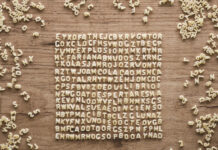Why patients might ask about beetroot juice as a treatment for heart failure.
Beetroot is a staple in pretty much every true Aussie hamburger. However, apart from being deliciously tasty, there is another reason why it might soon become more popular.
Beetroot, more specifically beetroot juice, contains dietary nitrate, and has been suggested for helping patients with heart conditions associated with overstimulation of the sympathetic nervous system. For instance, in heart failure, there is upregulation of the sympathetic nervous system, e.g. increased heart rate and contractility, as an attempt by the body to compensate for the failing heart.
It was the understanding of the mechanisms around sympathetic overstimulation, and the role of the renin-angiotensin system in heart failure, that led to the use of medicines such as beta-blockers and ACE-inhibitors for the condition. Unfortunately, these compensatory mechanisms will eventually further exacerbate heart failure symptoms and disease progression e.g. cardiac remodelling.
The role of nitrate
Regardless of the type of heart failure, i.e. with reduced ejection fraction (HFrEF) or with preserved ejection fraction (HFprEF), patients will experience shortness of breath and reduced peak oxygen uptake (VO2peak) during exercise, which affect their capacity for physical activity. VO2peak is plateauing oxygen consumption occurring during maximum physical activity and provides an indication of one’s capacity to sustain maximum physical performance.
Improvements in exercise capacity (e.g. endurance training and VO2peak) have been observed to improve quality of life and reduce morbidity in people living with HFrEF. One of the reasons thought to contribute to exercise intolerance in people living with heart failure, particularly HFrEF, is a reduction in nitric oxide (NO) signaling because of reduced NO production and increased NO destruction from oxidative stress related to endothelial dysfunction.
NO plays an important role as a vasodilator and modulates exercise performance, e.g. skeletal muscle contractions. Nitrates are typically used in conditions such as the prevention and treatment of angina, chronic heart failure (isosorbide dinitrate with hydralazine), and acute heart failure associated with heart attacks and unstable angina (glyceryl trinitrate infusion).
These nitrates (e.g. glyceryl trinitrate, isosorbide dinitrate and isosorbide mononitrate) work by providing an exogenous source of NO which mediates vasodilator effects, predominantly venodilation, to reduce venous return and preload to the heart, thereby reducing the heart’s oxygen requirements.
Studying the effects
There has been interest in using nitrate supplementation, e.g. beetroot juice, for heart health, and in conditions such as heart failure. This is because dietary nitrates (NO3 -) are reduced into nitrite (NO2 -) with the help of microbes in the saliva, and then reduced to NO in the tissues, particularly if there is pre-existing low levels of NO or oxygen dissolved in the blood (pO2).
Most recently, a proof-of-concept study investigated the effects of acute beetroot juice intake on exercise responses in eight people with HFrEF (ejection fraction ≤45%) on stable medical therapy, and not taking nitrates or other medicines that would affect the reduction of NO3 – to NO2 – to NO. It was a randomised, double-blinded, crossover trial design comparing 140 mL of concentrated beetroot juice supplement containing 11.2 mmol of NO3 -, against a placebo where the juice manufacturer extracted all of the NO3 -.
The primary outcomes investigated were changes in breathing responses and VO2peak, while secondary outcomes looked at exercise performance and efficiency (a measure of energy input vs external work achieved). Breathing response and effciency was unchanged, but there was a significant improvement in VO2peak (8 ± 2% from 21.4 ± 2.1 to 23 ± 2.3 mLmin-1kg-1 ; p <0.05).
Improvements were also noted in some of the tertiary outcomes such as levels of NO in the breath, which is a biomarker for NO production by the whole-body (increasing 60 ± 18%; p <0.05), and improvement in time to fatigue (7 ± 3% from 582 ± 84 to 612 ± 81 seconds; p <0.05).
One of the most obvious limitations of these findings is the small sample size, single strength of beetroot juice investigated, and the acute nature of the study.
Conclusion
While the results indicate statistical significance, it is important more work is conducted to investigate the clinical significance of these findings including adverse effects, applicability in patients with varying severities of HFrEF and potential place with existing management protocols, and even other heart conditions. Nevertheless, beetroot juice might be an easy and tasty way to help improve the quality of life and survival of patients living with HFrEF.
References
- Coggan AR, Broadstreet SR, Mahmood K, Mikhalkova D, Madigan M, Bole I, Park S, Leibowitz JL, Kadkhodayan A, Thomas DP, Thies D, Peterson LR. Dietary Nitrate Increases VO2peak and Performance but Does Not Alter Ventilation or Efficiency in Patients With Heart Failure With Reduced Ejection Fraction. J Card Fail. 2018;24(2):65-73. At: https://www.ncbi.nlm.nih.gov/pubmed/28916479
- Notay K, Incognito AV, Millar PJ. Acute beetroot juice supplementation on sympathetic nerve activity: a randomized, double-blind, placebo-controlled proof-of-concept study. Am J Physiol Heart Circ Physiol. 2017;313(1):H59-H65. At: https://www.ncbi.nlm.nih.gov/pubmed/28476923
- Lara J, Ashor AW, Oggioni C, Ahluwalia A, Mathers JC, Siervo M. Effects of inorganic nitrate and beetroot supplementation on endothelial function: a systematic review and meta-analysis. Eur J Nutr. 2016;55(2):451-459. At: https://www.ncbi.nlm.nih.gov/pubmed/25764393
- Eggebeen J, Kim-Shapiro DB, Haykowsky M, Morgan TM, Basu S, Brubaker P, Rejeski J, Kitzman DW. One Week of Daily Dosing With Beetroot Juice Improves Submaximal Endurance and Blood Pressure in Older Patients With Heart Failure and Preserved Ejection Fraction. JACC Heart Fail. 2016;4(6):428-37. At: https://www.ncbi.nlm.nih.gov/pubmed/26874390



 Professor Margie Danchin[/caption]
Professor Margie Danchin[/caption]

 Dr Peter Tenni[/caption]
Dr Peter Tenni[/caption]
 How should we deprescribe gabapentinoids, according to the Maudsley Deprescribing Guidelines[/caption]
How should we deprescribe gabapentinoids, according to the Maudsley Deprescribing Guidelines[/caption]



 Pharmacists have always prescribed, but they have the potential to prescribe much more
Pharmacists have always prescribed, but they have the potential to prescribe much more






